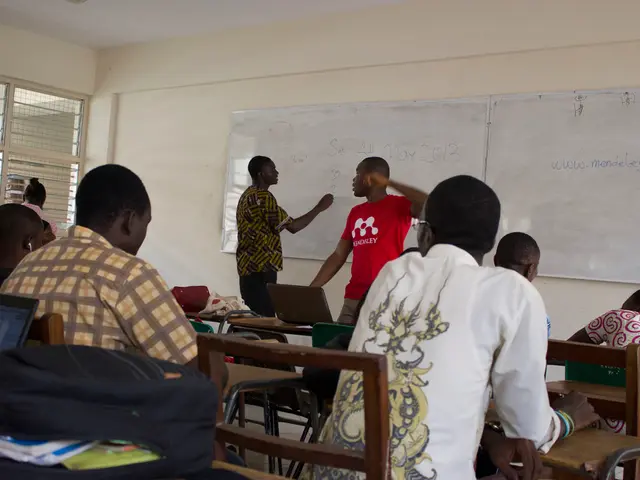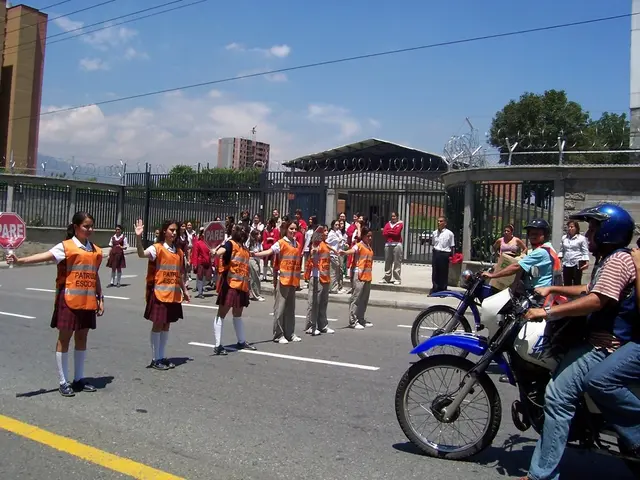Insufficient Capacity for 300 Students in Special Needs Facilities - Approximately 300 children are absent from mental development facilities
In Bavaria, over 300 spots for first-graders with intellectual disabilities remain unfilled in support centers across several regions, such as Munich, Nuremberg, and Augsburg, according to the Bavarian Ministry of Culture. The Ministry confirmed this to the German Press Agency (dpa).
The announcement comes as children and parents grapple with the repercussions, as well as teaching staff and school leaders, who are concerned about the shortage of spaces and staff. "The current situation is a significant burden for everyone involved," admitted Minister of Culture Anna Stolz (Free Voters).
Numerous regional solutions are under consideration to accommodate the affected children, including enrolling them in regular elementary schools with an inclusion profile or creating additional space and staff through targeted efforts. It is also plausible to set up classes for students with intellectual development needs at support centers focusing on other areas. Transition zone students with learning challenges could be educated at special pedagogical support centers.
The reasons for the sudden surge in registrations for support centers with a focus on intellectual development remain unclear, as the ministry is still investigating the unexpected development. Minister Stolz has called for a meeting of representatives from support centers, school funding bodies, school supervision, and integration assistance to discuss and find local solutions.
Inclusion of children with disabilities is a priority in Bavaria, with regular schools and specialized support centers providing options for families. In total, there are 87 centers in the Free State catering to intellectual development, along with numerous other centers providing support for learning, language, emotional and social development, hearing, vision, and physical and motor development.
Parents can choose between sending their child to a regular school with an inclusion profile, pending the availability of a tandem class consisting of a teacher and a special education professional. If no suitable options are available, a slight reduction in the teaching offer may be considered. The main objective is to minimize the number of waiting list spots at support centers by the start of the 2025/2026 school year.
In the long term, it is essential to expand the offer at support centers, implement suitable inclusive measures at general schools, and acquire additional staff for the centers. Potential causes for the shortages may include funding constraints, staffing challenges, or increased demand, while potential solutions include increased funding, staff training and retention, community partnerships, and technology integration. For more information about the situation in Bavaria and any solutions being considered, consult local government or educational authorities.
- The Ministry of Culture in Bavaria could consider implementing vocational training programs for teachers and staff in support centers to address the shortage of spaces and personnel, as part of the education-and-self-development and learning aspects in the community policy.
- To strengthen the mental-health and fitness-and-exercise aspects of the affected children, vocational training in science and health-and-wellness could be provided, helping in creating a balanced and well-rounded development for them.
- To attract more individuals interested in working with special needs children, offering vocational training programs focused on working with children with intellectual disabilities could help address the staffing challenges faced by Bavarian support centers. This not only aids in the expansion of the offer at support centers but also plays a significant role in the long-term inclusive measures planned for general schools.








